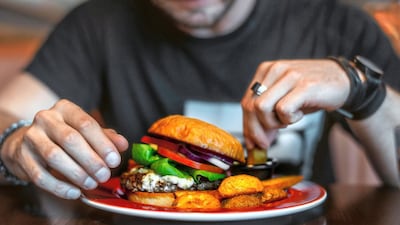There’s no getting away from the fact that in prosperous nations, some people overindulge when it comes to what they eat. All over the world, this is having disastrous consequences for the health of millions of people. As of this week, though, for citizens of Saudi Arabia, there will be no getting away from the exact calorific value of their orders, every time they eat out.
The ruling by the Saudi Food and Drug Authority that every restaurant and cafe must advertise the calorie content of each dish on their menus is a welcome move in the global and regional battle against obesity. There are also plans for a similar scheme in Dubai. Around the world, the jury is still out on whether including such information on menus has an appreciable impact on what people choose to order, or how many people become overweight.
Dietary information is available on many food products bought in supermarkets, but people with busy lives are eating out more and more. In 2016 the US Food and Drug Administration made calorie labelling on chain-restaurant menus and vending machines obligatory after discovering that Americans were consuming a third of their calories away from home. There is no simple, single fix to this problem and listing calories is just one of a range of weapons in the public-health armoury. Another is the imposition of taxes on sugary drinks, a measure used in the UAE, the UK and other countries with some evidence of success.
However, as the product of both cultural and environmental influences, eating habits can be deeply ingrained and hard to break. Altering them requires a determined effort that must begin with health and nutritional education and cooking lessons for boys and girls in schools, backed by public awareness campaigns stressing the value of healthy diets and exercise. But anything that draws attention to this issue must be welcomed. After all, equipping people to make informed decisions about what they eat is always a step in the right direction.

